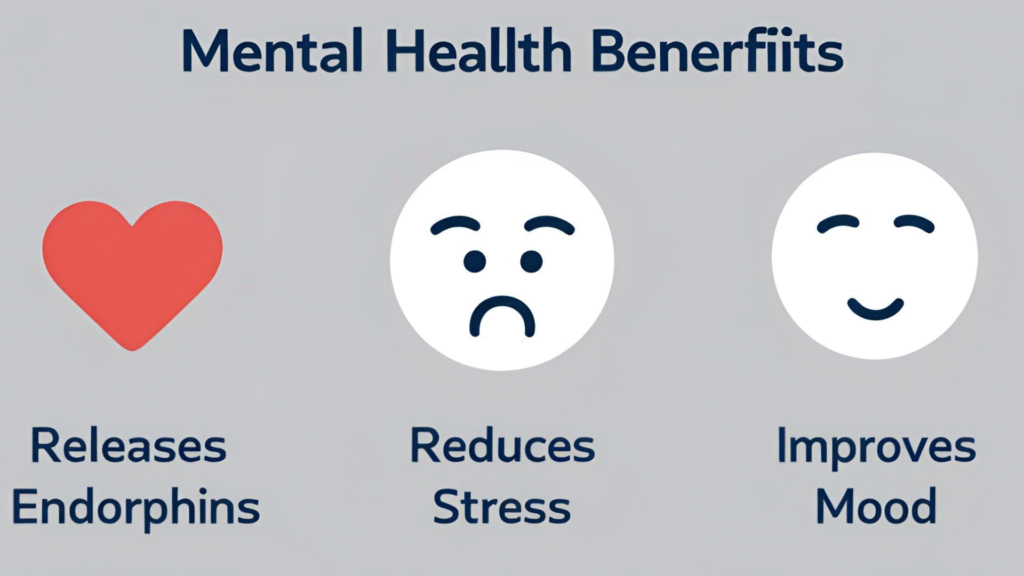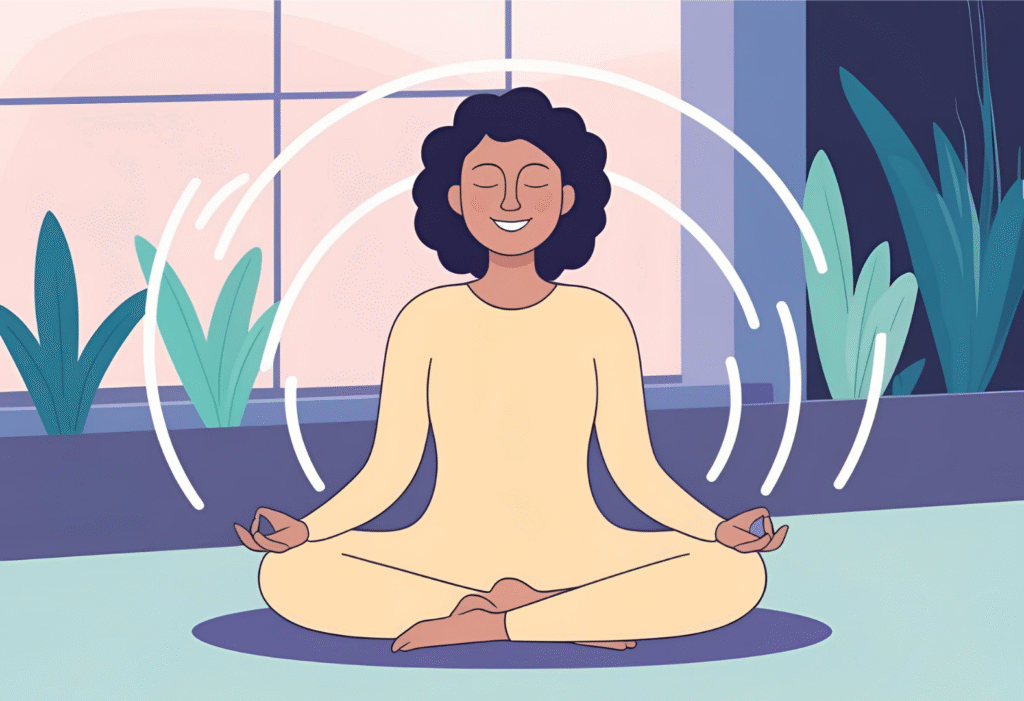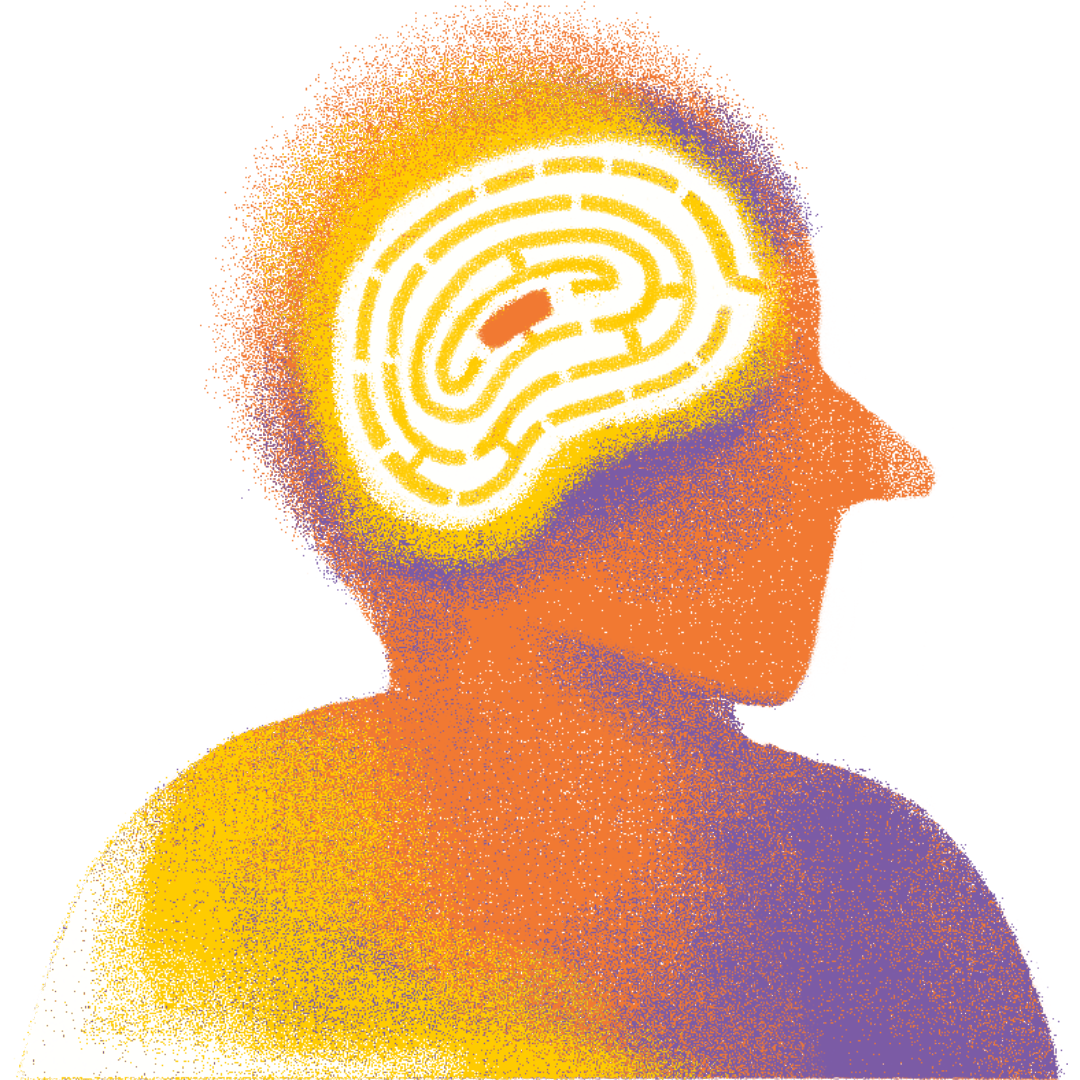Key Points
- Research suggests daily mental health habits like quality sleep, healthy eating, and exercise can improve well-being.
- It seems likely that social connections, mindfulness, and limiting screen time also support mental health, though effects vary by individual.
- The evidence leans toward acts of kindness and self-compassion reducing stress, but results may depend on personal circumstances.
- Controversy exists around optimal habits, as effectiveness can differ based on lifestyle, genetics, and mental health conditions.

Introduction
Hey there! Ever feel like your mind is racing a mile a minute, and you just can’t catch a break? You’re not alone. In our busy lives, mental health often takes a backseat. But what if I told you that there are small, daily habits you can adopt to boost your mental well-being—and they’re backed by science? In this post, I’m sharing 10 science-backed daily mental health habits that can make a real difference. These aren’t just feel-good tips; they’re supported by research and can help you feel better every day. Let’s dive in and explore how to take better care of your mind.
The Habits and Why They Matter
Here’s a breakdown of 10 daily mental health habits, each with a quick explanation, scientific backing, and a practical tip to get started. These are designed to be simple and adaptable, so you can find what works for you.
1. Prioritize Quality Sleep
We all know that groggy, foggy feeling after a bad night’s sleep—everything seems harder, right? Research suggests getting 7-9 hours of quality sleep can regulate emotions and reduce depression risk (Healthline: Why Do We Sleep?). Try setting a consistent bedtime and creating a relaxing routine, like reading or a warm bath, to wind down.

2. Eat a Healthy Diet
You are what you eat, and it affects your mood too. Studies show a diet rich in fruits, veggies, whole grains, and omega-3s (like salmon) can lower depression symptoms (Healthline: Mood Food). Start by swapping one processed snack for a piece of fruit each day—it’s progress, not perfection.

3. Engage in Regular Physical Activity
Exercise isn’t just for your body; it lifts your mood too. Evidence shows activities like walking or yoga release endorphins, reducing stress and anxiety (Healthline: Exercise and Depression). Even a 10-minute walk can help—find something you enjoy, like dancing, to make it a habit.

4. Foster Social Connections
Humans thrive on connection, and spending time with others can boost happiness. Research indicates regular social interactions reduce loneliness and support mental health (Psychiatry.org: Lifestyle to Support Mental Health). Try a quick call with a friend or schedule a coffee meetup—it’s worth the effort.

5. Practice Mindfulness and Meditation
Feeling overwhelmed? Mindfulness can bring you back to the present, reducing stress. Studies highlight daily meditation improves emotional regulation and lowers anxiety (Healthline: Benefits of Meditation). Start with 5 minutes a day, focusing on your breath—it’s easier than you think.

6. Limit Screen Time and Social Media
Social media can be a double-edged sword, sometimes increasing stress. Research suggests limiting screen time, especially before bed, can improve mental health (Healthline: Habits to Improve Mental Health). Try setting phone-free hours or turning off notifications to reclaim your peace.

7. Get Outside in Nature
There’s something calming about fresh air and green spaces. Evidence shows spending time in nature reduces cortisol levels and boosts mood (NCBI: Nature and Mental Health). Even a 5-minute walk outside can help—notice the sky, trees, and sounds around you.

8. Practice Self-Compassion
We’re often harder on ourselves than on others. Research indicates self-compassion—being kind to yourself during tough times—reduces anxiety and builds resilience (Harvard Health: The Power of Self-Compassion). Next time you mess up, try saying, “It’s okay, everyone struggles sometimes”—it’s a game-changer.

9. Make Time to Rest and Relax
In our go-go-go world, rest feels like a luxury, but it’s essential. Taking downtime, like reading or listening to music, can prevent burnout and support mental health. Schedule 10 minutes a day to do nothing—it’s not lazy, it’s necessary.
10. Perform Acts of Kindness
Doing something nice for others can lift your spirits too. Studies show acts of kindness, like complimenting someone or volunteering, enhance well-being and create purpose (BetterUp: Good Habits). Look for small ways to spread kindness daily—it’s a win-win.

Conclusion
Taking care of your mental health doesn’t have to be complicated. These 10 daily habits, backed by science, can help you feel better and build resilience. Remember, it’s about progress, not perfection—start with one or two and see how they fit into your life. If you’re ever feeling overwhelmed, don’t hesitate to seek professional help. You’re not alone, and there are resources out there.
Which habit will you try first? Share your thoughts in the comments, and let’s support each other on this journey. If you found this helpful, please share it with friends and family—we can all use a mental health boost!
Comprehensive Analysis of Daily Mental Health Habits
This detailed exploration builds on the key points and habits outlined above, providing a deeper dive into the research, practical applications, and personal insights to ensure a thorough understanding of daily mental health habits.Importantly, the focus is on delivering a highly professional, engaging, and informative narrative, specifically suitable for readers seeking both scientific backing and practical, actionable advice
Background and Research Context
Notably, mental health habits have gained significant attention in recent years, particularly given the rising awareness of mental well-being in our fast-paced society. In fact, research consistently highlights that small, consistent daily practices can greatly impact emotional regulation, stress reduction, and overall mental health. For example, a 2023 study from the University of Cambridge, published in Nature Mental Health, analyzed nearly 300,000 participants and found that maintaining at least five of seven healthy lifestyle factors, such as sleep and social connection, reduced depression risk by 57% (Healthy lifestyle can help prevent depression – University of Cambridge). This underscores the importance of integrating science-backed habits into daily routines.
Further, sources like Healthline and Psychiatry.org emphasize that lifestyle interventions, such as daily movement and nutritious eating, complement traditional treatments like therapy and medication, offering a holistic approach to mental health care.
Detailed Habit Analysis
Below is a comprehensive breakdown of the 10 daily mental health habits, each supported by scientific evidence, practical tips, and considerations for implementation. A table summarizes key habits and their benefits for easy reference.
| Habit | Scientific Backing | Practical Tip | Potential Impact |
|---|---|---|---|
| Prioritize Quality Sleep | Linked to lower anxiety, better emotional regulation (Healthline: Why Do We Sleep?) | Set consistent sleep/wake times, create a relaxing routine | Reduces depression risk, improves focus |
| Eat a Healthy Diet | Omega-3s and whole grains reduce depression symptoms (Healthline: Mood Food) | Swap one processed snack for fruit daily | Boosts mood, stabilizes energy levels |
| Engage in Regular Physical Activity | Endorphins from exercise reduce stress, anxiety (Healthline: Exercise and Depression) | Try a 10-minute walk or yoga session | Enhances mood, builds resilience |
| Foster Social Connections | Social interactions lower loneliness, support mental health (Psychiatry.org) | Schedule a weekly coffee meetup or daily call | Increases happiness, reduces isolation |
| Practice Mindfulness and Meditation | Improves emotional regulation, reduces anxiety (Healthline: Benefits of Meditation) | Start with 5 minutes of breath focus daily | Promotes calm, enhances decision-making |
| Limit Screen Time and Social Media | Reduces stress from comparison, improves sleep (Healthline: Habits to Improve Mental Health) | Set phone-free hours, turn off notifications | Lowers anxiety, improves mental clarity |
| Get Outside in Nature | Nature exposure lowers cortisol, boosts mood (NCBI: Nature and Mental Health) | Take a 5-minute outdoor walk, notice surroundings | Reduces stress, enhances connection |
| Practice Self-Compassion | Reduces anxiety, builds resilience (Harvard Health: The Power of Self-Compassion) | Speak kindly to yourself during setbacks | Lowers self-criticism, improves well-being |
| Make Time to Rest and Relax | Prevents burnout, supports recovery (BetterUp: Good Habits) | Schedule 10 minutes daily for hobbies or downtime | Enhances mental recovery, reduces fatigue |
| Perform Acts of Kindness | Boosts happiness, creates purpose (BetterUp: Good Habits) | Compliment someone or volunteer weekly | Increases well-being, fosters connection |
Each habit is designed to be adaptable, acknowledging that individual needs and lifestyles vary. For example, while sleep is universally beneficial, the ideal amount (7-9 hours) may differ based on age and health conditions, as noted in Healthline. Similarly, social connections might be more challenging for introverts, but even small interactions, like a text message, can provide support.
Personal and Practical Insights
To make these habits relatable, consider how they might fit into daily life. For instance, many people find that setting a bedtime alarm helps enforce a sleep routine, much like how I’ve heard friends say, “I used to stay up late scrolling, but now I read a book instead—it’s made such a difference.” This mirrors research showing that pre-sleep routines reduce anxiety (Healthline: Habits to Improve Mental Health).
For exercise, you might notice, “Even a quick walk around the block lifts my mood,” aligning with studies showing moderate activity releases endorphins (Healthline: Exercise and Depression). These anecdotes, while hypothetical, reflect common experiences, making the habits feel accessible and human.
Addressing Controversy and Individual Variation
It’s worth noting that while these habits are backed by science, their effectiveness can vary. For example, some debate exists around optimal screen time limits, as social media can also provide connection for some (Healthline: Habits to Improve Mental Health). Similarly, self-compassion might feel unnatural for those used to self-criticism, but research suggests it’s a learnable skill (Harvard Health: The Power of Self-Compassion). This complexity highlights the need for personalization, acknowledging that what works for one person may not work for another.
Conclusion

Incorporating these habits doesn’t require perfection—start small, like trying one habit for a week and seeing how it feels. For instance, begin with mindfulness: set aside 5 minutes daily to focus on your breath, as suggested by Healthline. Over time, you might add more, building a routine that supports your mental health.
Which habit will you try first? Share your thoughts in the comments below, and let’s support each other on this journey. If you found this helpful, please share it with friends and family—we can all use a mental health boost. Together, we can create a community that values and prioritizes well-being.



The website design looks great—clean, user-friendly, and visually appealing! It definitely has the potential to attract more visitors. Maybe adding even more engaging content (like interactive posts, videos, or expert insights) could take it to the next level. Keep up the good work!
thank you so much
Pingback: State of Mind: The Wild Chaos Inside Your Head
Absolutely get this. Sometimes our minds feel like a browser with 47 tabs open—and one of them’s playing music we can’t find. 🧠💥 Taking five minutes to pause, breathe, and reset really can make a huge difference. It’s wild how just noticing the chaos can start to calm it down. Thanks for the reminder!
Pingback: Break Free from negative thoughts | Mind Mastery Tips
dd7tra
65tbyp
wt2c4z
2j4k9o
SA Gaming Vertical… Hmm, hadn’t heard of them before. Site looks professional enough and I saw a decent selection of games. Worth a shot if you’re after something new. Here’s the link: sagamingvertical!
buy cannabis legally online worldwide